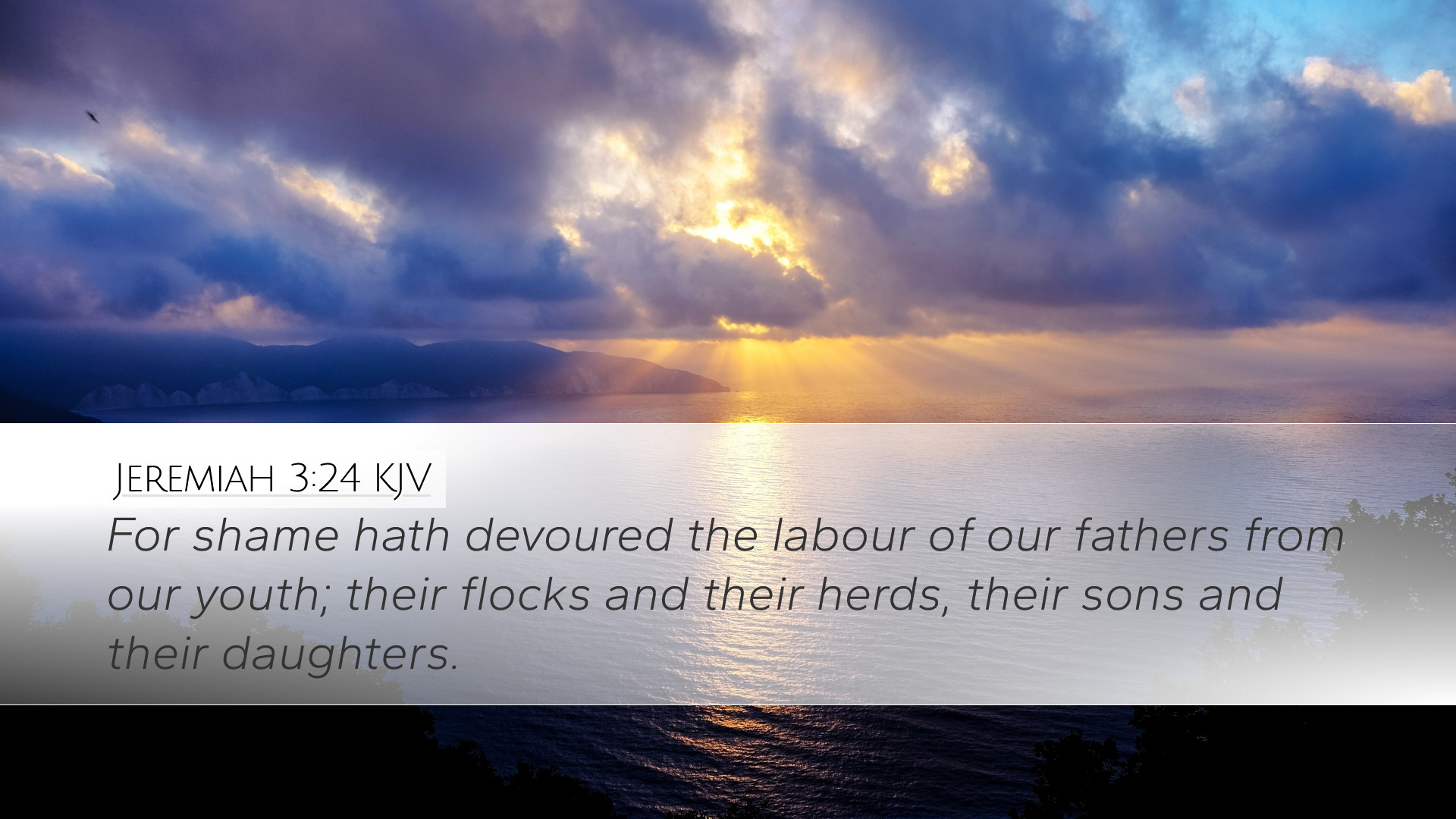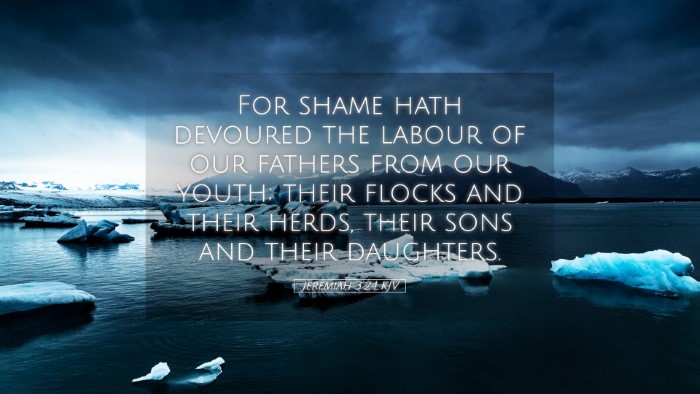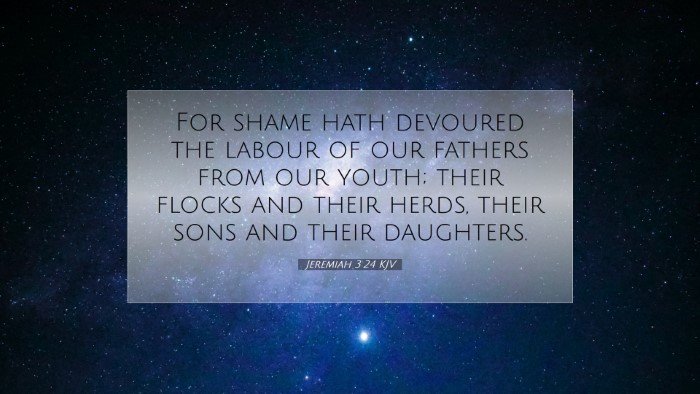Commentary on Jeremiah 3:24
Jeremiah 3:24: "But the shameful thing has devoured the labor of our fathers from our youth, their flocks and their herds, their sons and their daughters."
Introduction
The context of Jeremiah 3:24 lies in the profound spiritual decline of Israel, described throughout the Book of Jeremiah. This verse captures the essence of Israel’s infidelity and the tangible consequences that arise from turning away from God. The prophetic voice of Jeremiah elucidates the severity of their transgressions and the resulting devastation to their lives and heritage.
Historical Context
Understanding the historical backdrop of this passage is vital. Jeremiah prophesied during a tumultuous period for Israel, characterized by idolatry, moral decay, and the impending Babylonian captivity. The people’s rebellion against God directly correlates with their socio-economic decline, as suggested in this verse.
Insights from Commentaries
Matthew Henry's Commentary
Matthew Henry emphasizes the widespread corruption and idolatry that plagued Israel. He notes that the "shameful thing" refers to their idol worship, which consumed all that was once good among the people. He asserts that their prosperity, symbolized by "the labor of our fathers," has been rendered futile due to their unfaithfulness. Henry indicates that this loss is not just material but spiritual, as generations suffer the consequences of national sin.
Albert Barnes' Notes on the Bible
Barnes elaborates on the metaphor of devouring, highlighting that the sinful practices of the Israelites have led to a consuming effect on their heritage. He suggests that the verse speaks to a relentless cycle of loss, where the results of past sins ascend to the present, showing how deeply intertwined their past actions are with current suffering. Barnes underscores that this divine judgment is rooted in God's desire for His people to return to Him.
Adam Clarke's Commentary
Adam Clarke interprets the implications of the verse through a lens of regret and lamentation. He posits that the "shameful thing" signifies both the idols worshipped and the moral decay resulting from such actions. Clarke highlights the historical significance of this reflection, as it serves as a warning for future generations about the consequences of abandoning divine commandments. He points out that this passage calls for introspection and urges believers to recognize the impact of their choices on both personal and communal wellbeing.
Theological Reflections
This verse offers crucial insights into the nature of sin and its consequences. The imagery of consumption serves as a stark reminder that turning away from God can lead to the erosion of both spiritual and physical resources. Theologically, it reflects the idea that God desires a faithful relationship with His people and that their disobedience has far-reaching implications.
Spiritual Devastation
- Impact on Community: The losses incurred are collective, prompting reflection on the societal ramifications of personal sin.
- The Cycle of Sin: The verse illustrates the cyclical nature of sin and its ability to devastate over generations.
- Call to Repentance: Implicit in Jeremiah’s prophecy is a call to repentance, urging the people to return to God for restoration.
Contemporary Application
In light of modernity, Jeremiah 3:24 reminds today’s church of the importance of vigilance against spiritual complacency. The culture’s persistent pull toward secularism and materialism often mirrors the idolatry of ancient Israel. For pastors and theologians, this passage serves as a poignant challenge to shepherd their congregations toward genuine faithfulness and to recognize the spiritual and communal effects of negligence in faith.
Conclusion
Jeremiah 3:24 encapsulates a critical moment in Israel's narrative, serving as a timeless warning to all believers about the dangers of spiritual infidelity. Through the insights of esteemed commentators like Matthew Henry, Albert Barnes, and Adam Clarke, we gain a multifaceted view of the text that speaks to the heart of God’s desire for His people and the profound consequences of forsaking that relationship.
This verse continues to resonate, urging a collective reflection on individual and community faithfulness and the need for continual repentance to avert the consuming devastation of sin.


